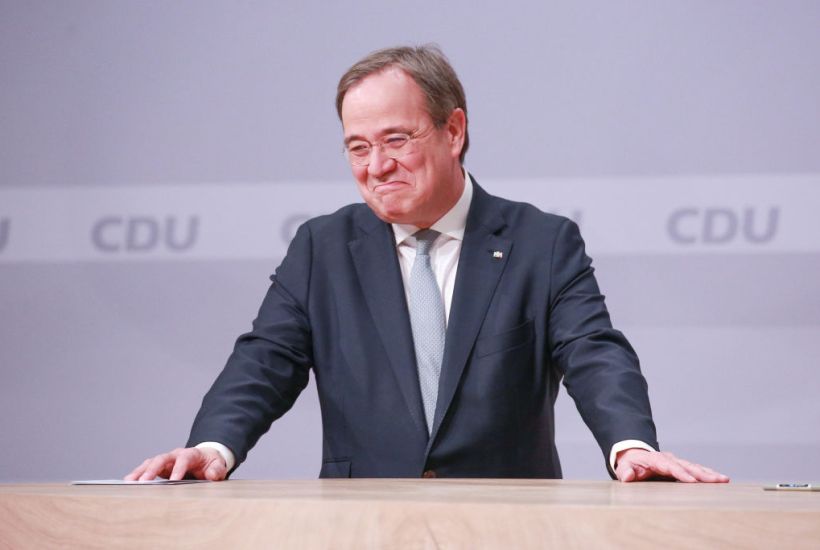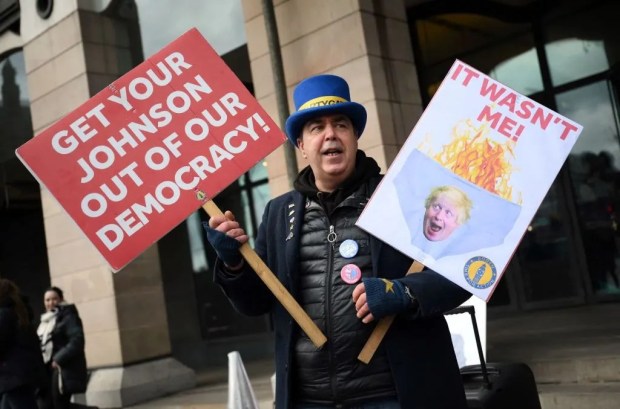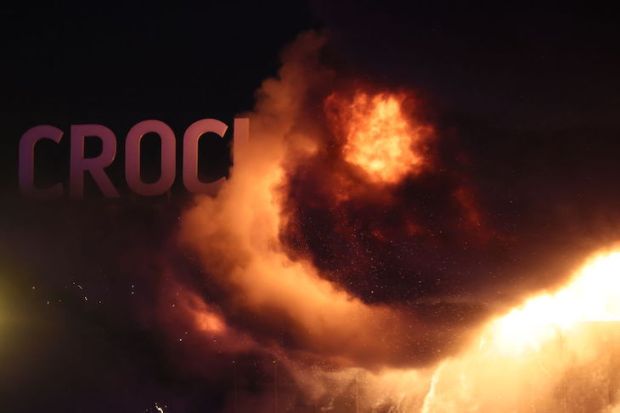Armin Laschet is the new chairman of Germany’s Christian Democrats – the party that was led by Angela Merkel for almost two decades. Laschet was elected in a runoff vote during the digital party conference on Saturday, beating centre-right candidate Friedrich Merz, by 521 votes to 466, to resolve a three-way contest that had also featured the foreign policy expert Norbert Röttgen. Among the three candidates, Laschet, who since 2017 has been the premier of Germany’s most populous state, North Rhine-Westphalia, is the one who stands most strongly for a continuation of Merkel’s centrist course.
A Catholic from the Rhine region, Laschet represents a large group of Christian Democrats that have always insisted on combining moderate conservative values with the principles of the social market economy. Laschet has vowed to do everything to allow his party to do well in upcoming regional elections and to keep the party’s hold on the position of chancellor after the general election in September. But there is doubt that the 59-year-old will become the lead candidate for the alliance of Christian Democrats and Bavaria’s Christian Social Union for the general election. The two parties run as an alliance at national elections, and with only two exceptions, the lead candidates have been members of the Christian Democrats.
Laschet became a career politician after a brief stint as a journalist at a Bavarian broadcasting station following law school. He knows Munich quite well and is aware that his most fierce competitor for the future chancellorship could be residing in the Bavarian capital. Markus Söder, Bavaria’s state premier and leader of the Christian Social Union, has gained popularity among conservative voters during the coronavirus pandemic thanks to his hardline stance. He could use the momentum and demand from Laschet to be selected as lead candidate. Quickly after Laschet’s victory, Söder congratulated on Twitter, writing: ‘I’m looking forward to working together! Together we will continue the Union’s success story.’ (‘Union’ is the nickname of the party alliance.) Regardless of friendly words on social media, hard-fought negotiations among conservative leaders behind closed doors are expected in the next few months.
Laschet received vital support from health minister Jens Spahn during his campaign for the leadership election. Spahn himself is said to have serious ambitions of becoming Merkel’s successor. But the rising star of Germany’s Christian Democrats did not do himself any favours on Saturday when he blatantly interfered in the leadership election. After all three candidates had finished their respective speeches, party delegates were allowed to ask questions. Spahn took the chance to get himself some screen time, admitting that he did not want to ask any questions and instead voice his support for Laschet once again.
Laschet and Spahn published a 10 point programme a few days before the leadership election. In it, they affirmed a ‘clear boundary on the right’, meaning that they do not want to cooperate with the right-wing Alternative for Germany party in any way. They also stated that it will be their objective to manifest the position of the Christian Democrats as a mainstream people’s party.
The duo said they aspire to ‘make the 2020s a decade of modernisation for Germany: new economic dynamism, comprehensive security, top-notch and equitable educational opportunities.’ They would want to avoid new burdens on the battered economy, establish a digital ministry at the federal level, and show ‘zero tolerance for criminality and extremism.’
In regards to foreign policy, it is expected that Laschet and Spahn will continue to strengthen the executive powers of the European Union while revitalising the transatlantic profile of the party, as they intend to push for cooperation with the Biden administration on climate and trade policy. Laschet is very close to Macron and is a Francophile, like many German politicians from the Rhine area. He is expected to work closely with the French government on a number of international issues.
Laschet will also presumably try to keep communication channels with Russia open, just as Merkel has tried to do. He had condemned the annexation of Crimea but has also stated that a relationship with Russia is necessary to maintain a degree of international stability in the East. He said in 2019: ‘Russia is of central importance to international security. That fact alone makes dialogue necessary. Even during the most tense times in the Cold War, there was an exchange with the West: in science, trade, culture and civil society.’
And while Laschet has come under fire for his stance on Syria in 2014, after he accused the then-US secretary of State John Kerry of supporting Isis against Assad, he appears to have walked back from some of his remarks. He told BILD last year that he has ‘never defended Bashar al-Assad in his entire life’. In many ways, Germany’s foreign policy will not change significantly compared to the Merkel years.
Whether Laschet or Spahn will be able to realise any of their aspired policies from the chancellor’s office though is still to be seen.
Got something to add? Join the discussion and comment below.
Get 10 issues for just $10
Subscribe to The Spectator Australia today for the next 10 magazine issues, plus full online access, for just $10.




















Comments
Don't miss out
Join the conversation with other Spectator Australia readers. Subscribe to leave a comment.
SUBSCRIBEAlready a subscriber? Log in